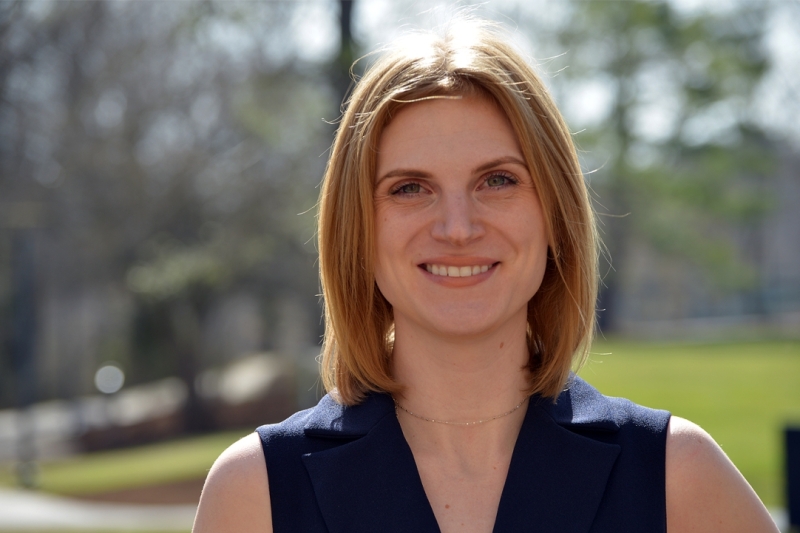With the Delaware Court of the Chancery Melissa May ’23L spent the fall semester as an extern in the Delaware Court of Chancery under Vice Chancellor Lori W. Will.
Melissa May ’23L is from Seattle, Washington. After attending college, she moved to London and worked at an investment bank while completing a postgraduate certificate in international business. Melissa then spent four years working as a litigation paralegal before starting law school.
Where did you work this fall?
I had the privilege of serving as an extern in the Delaware Court of Chancery under Vice Chancellor Lori W. Will. The court offers expertise on corporate cases as most organizations and Fortune 500 companies are formed under Delaware law. When internal disputes inevitably arise between investors, boards of directors, and managers—these differences are brought to the court for resolution.
How did you secure this externship?
The court has a long-standing relationship with Washington and Lee University School of Law. While on the bench, Vice Chancellor Joseph R. Slights III (’88L) established a program where two 3Ls were invited to extern full-time at the court. Although he has since retired, I was able to apply and continue the program under Vice Chancellor Will for academic credit.
Describe your work experience and daily schedule.
Each week involved a mix of attending hearings, legal research, drafting memos, and editing opinions. My tasks touched every facet of the business litigation process, but the court’s unique jurisdiction also guided my daily experiences. I was given real responsibility considering the court’s non-jury setting that produces volumes of written work.
What are some skills you developed this fall?
I noticed a substantial improvement in my research and writing abilities. I attribute this increase to the live feedback I received and the many briefs I evaluated over the semester. Through each assignment, I gained immense clarity on the contract and corporate laws that apply to corporations and LLCs. The externship meaningfully contextualized my legal education.
What surprised you about the work you did during your externship?
The Delaware Court of Chancery has a palpable, real-time quality. After decisions are reached, markets listen, and business practices are immediately refined nationwide. It is no wonder that the culture feels mission-based. The jurists approach legal issues with reverence as they develop doctrines, and this level of care extends to the community of clerks and staff. I now truly understand what makes Delaware a preeminent corporate forum.
What was your favorite aspect of your fall experience?
A highlight was my exposure to novel corporate law issues at the court. Just before my externship began, Vice Chancellor Will’s Multiplan decision gave the first word in Delaware about the fiduciary duties of Special Purpose Acquisition Company (“SPAC”) leaders. Her docket has subsequently filled up with related claims asking what information must be disclosed to investors before a de-SPAC merger transaction (which is the sole purpose of these companies). It was exciting to witness the development of SPAC jurisprudence.
Has this experience helped you figure out your post graduate plans, and if so how?
The externship increased my awareness of how to couple my long-term interest in organizational practices with a legal career. Experiences at the Delaware Court of Chancery are highly respected in private practice as large firms often litigate matters on behalf of Delaware clients. I look forward to building upon the insights gleaned after graduation.
 Melissa May ’23L
Melissa May ’23L
You must be logged in to post a comment.